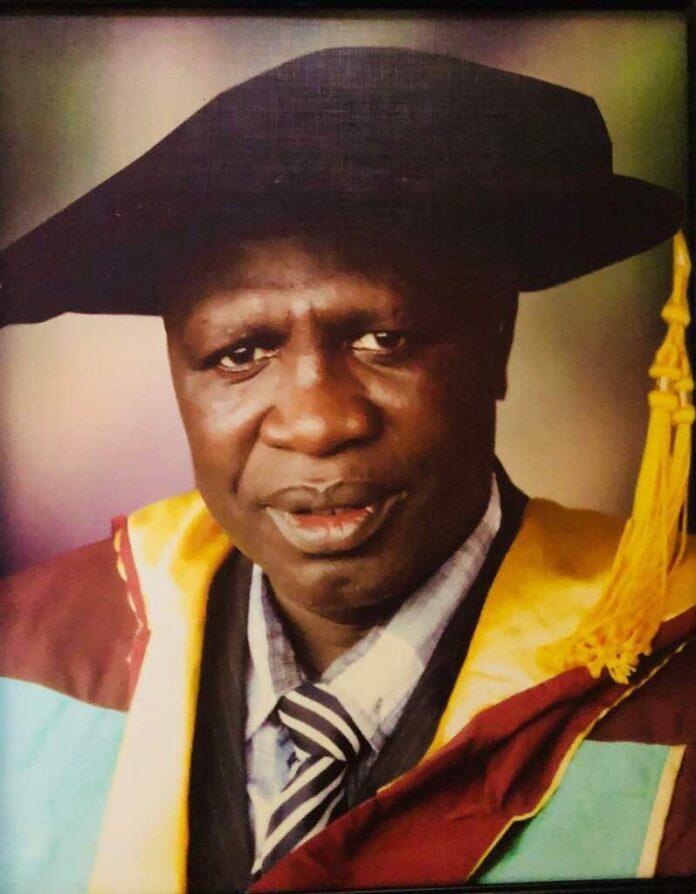Israel-Palestine Conflict: Two-state resolution or unending war, by Professor M. K. Othman
Deep Thought With Othman
In 1994, representatives of two sworn foes stood before the world to accept the Nobel Peace Prize for their leadership in promoting a truce and peace in the Middle East between Israel and Palestine, the two arch-opposing camps. The Nobel Peace Committee recognized Yasser Arafat (1929–2004), the leader of the Palestinian people, and Israeli politicians Shimon Peres (1923–1923) and Yitzhak Rabin (1922–1995) for their efforts to bring peace to the unstable Middle East.
The reference depicted Israel’s prime minister and Yasser Arafat, the PLO’s chairman, as sworn adversaries who diligently detest one another and were acutely conscious of their different positions. Yet, they were assembled at a solemn ceremony to be recognized and honoured as peacemakers.
These three Nobel Peace Prize honorees were not entirely supported by some of their people, as well as the insincerity of international mediators who failed to honour the spirit and text of the United Nations resolution, peace pact, and accord. Yitzhak Rabin, one of the three recipients, was assassinated by Yigal Amir, an extremist Jew passionately opposed to the Oslo Accords and the handing over control of parts of the West Bank to Palestinians as part of a groundbreaking peace accord. Yigal Amir felt that God had decreed that Jews and Arabs would be sworn enemies until the end of time, and hence, he saw no reason to make peace with Arabs. During the first Intifada or Palestinian uprising in 1988, Arafat declared the independent State of Palestine and was chosen President of this yet-to-be-created country. The same year, he delivered a speech at a special UN session in Geneva announcing the PLO’s rejection of terrorism and supporting “the right of all parties involved in the Middle East conflict to live in peace and security.”
READ ALSO: Carter@99: Hearty cheers to the champion of downtrodden – Nigeria, nay Africa, by Prof. MK Othman
On the other side, after surviving many attempts on his life, both overt and covert, Yasar Arafat of the Palestinian Liberation Organization (PLO) suffered fewer penalties but a massive political loss that nearly disintegrated the PLO into three or more diametrically opposed factional groupings whose philosophy is to defeat Israel through armed struggle. To them, the use of arms was the only option for Palestine to achieve sovereignty. Their tenet is that “we are not asking for mercy, but through struggle, we will compel the world to justice.” According to their maxim, the world cannot experience peace until justice is served to their cause.
From 1994, when the leaders received the Nobel Peace Prize, to the present, there has not been an honest conversation with a road map towards the two-state solution on the United Nations agenda. Peace has eluded Israel and Palestine, and the sanctity of lives and properties has been given to the dogs to the point where tallying the number of lives lost, which is reported casually, has become meaningless.
Historically, the Middle East upheaval began on the first day of the Balford Declaration, which announced the establishment of the state of Israel in the heart of Palestinian territory in 1948. The creation was supported by a spiritual claim and Jewish oral tradition that the area was their ancestral home. Between 1967 and 1970, the turmoil reached a boiling point and devolved into a full-fledged conflict between Arabs (Egypt, Syria, Jordan, and Lebanon) and Israelis. With the West’s complete support, Israel succeeded in seizing land from the four Arab countries. Israel captured the West Bank, East Jerusalem, the Gaza Strip, the Golan Heights, and the Sinai Peninsula. It annexed East Jerusalem, along with a slice of the West Bank, and moved to build Jewish settlements in the occupied lands. Israel continued the expansion of these against all known conventions, United Nations resolutions, and Peace Accords.
There have been unsuccessful efforts to broker peace between the two arch-enemies at both regional and international levels. Some of these efforts were the Dayton Agreement, the Camp David Accord, the Oslo Agreement, and many United Nations resolutions aimed at silencing guns and halting blood spilling to pave the way for the creation of two states to live side by side with mutual guarantee peace, security, and good neighbourliness. Where is this blood-letting, mutual persecution, aggression, hostility, and war of attrition leading the Middle East? War without end.
This ending conflict has radicalized adults and youth on both sides of the divide, creating a bipartisan global support base. It is a shame to the human race that the conflict has defied all solutions. Why is it so?
On the part of the United Nations Resolutions, America, the leader of the free world, is not an honest broker because of its consistent bias in favour of Israel getting the upper hand at all times. For example, in the current wave of the crisis, instead of mobilizing support for the peaceful resolution of the crisis with a concession from each side, America has brought lethal support to Israel without any recourse to the flight of the Palestinians and their right to freedom, liberty and right to a homeland.
In 1999, the US government signed a Memorandum of Understanding through which it committed to providing Israel with at least US$2.67 billion in military aid annually for the following ten years; in 2009, the annual amount was raised to US$3 billion, and in 2019, the amount was raised again, now standing at a minimum of US$3.8 billion that the US is committed to providing Israel each year. How can peace be made in the region with massive military support to Israel?
The causalities to Israel and Palestine sides have been outrageous and sickening, akin to a holocaust or pogrom. For example, from 2008 to 2021, 6,407 Palestinians and Israelis were killed or injured in the occupied Palestinian territory and Israel in the context of the occupation and conflict. In less than 20 days, the current conflict has produced over 5,000 causalities with over 10,000 injuries and tens of thousands of displaced persons, mostly Arabs, left without food and shelter.
The Israel-Palestine crisis is becoming a war without end, with calamitous devastations and a bleak future in the region. The crisis radicalizes the citizens of the two opponents with massive supporters within and outside the region. The crisis has escalated and become a severe threat to world security because of the proliferation of small and medium firearms, inter and intra regions. Combining this crisis with the trend of the world demography – population explosion, the combined insecurity of hunger, poverty, injustice, and massive arms in the hands of non-state actors would create a crisis-ridden world with no hiding place for both wealthy and poverty-stricken people, there would be no place to sleep. Alternatively, the 2-state solution can provide viable and sustainable peaceful coexistence. Both antagonists and protagonists must do away with the current trend of violence and imbibe peace for mutual benefit. Violence can never solve the Middle East crisis. Fortunately, 100 million Americans, including its former President, Barrack Obama, who lent his strong moral voice and even some Jews, support and promote a 2-state solution. They are a strong advocate for peace. Why not give peace a chance? The USA and its Allies should review their foreign policies in the Middle East to adopt the implementation of the 2-state solution.
The current battle should allow the world to halt the slaughter and bring the war to an end by persuading the antagonists to grant a lasting and well-deserved peace a chance. The people of the Middle East and the entire human race are tired of seeing, nursing the injuries, burying the dead, and creating widows, widowers, and orphanages—enough of breaking our hearts.
Professor Othman is the Executive Director of National Agricultural Extension and Research Liaison Services (NAERLS), ABU Zaria.
Disclaimer
The opinions and views expressed in this article belong solely to the original author and other contributors. They do not necessarily reflect the official policy or opinions of Neptune Prime.
Follow the Neptune Prime channel on WhatsApp:
Do you have breaking news, interview request, opinion, suggestion, or want your event covered? Email us at neptuneprime2233@gmail.com






Impressive, well explained.
Thanks,